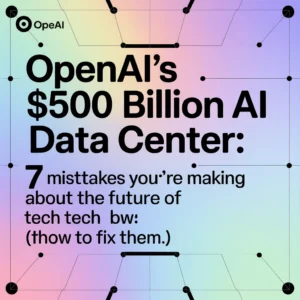What if I told you that while you're reading this, there's a computer somewhere that can exist in millions of different states at the same time? Sounds like science fiction, right? Well, quantum computers are doing exactly that, and they're about to get a whole lot more accessible thanks to something called HyperQ.
Let me break this down in plain English. You don't need a physics degree to understand why this matters.
What Makes Quantum Computing Different?
Your regular computer thinks in simple terms – everything's either a 0 or a 1. That's it. It's like having a coin that can only be heads or tails, never both.
Quantum computers? They're playing by completely different rules. Instead of bits, they use something called qubits (quantum bits). Think of a qubit as a coin that's spinning in the air – it's both heads AND tails until it lands. This weird property is called superposition, and it's what makes quantum computers so powerful.

Here's where it gets wild. While your laptop might process one calculation at a time (really fast, but still one at a time), a quantum computer can explore millions of possible solutions simultaneously. It's like having a maze where instead of trying one path at a time, you can walk down every single path at once.
But there's another quantum trick called entanglement. When qubits get entangled, they become connected in a spooky way – change one, and its partner instantly reacts, no matter how far apart they are. Einstein called this "spooky action at a distance" because it bothered him so much.
The Quantum Mechanics Behind the Magic
Now, you might be wondering how this actually works in practice. Let's use a relatable example.
Imagine you're trying to crack a password with 1 million possible combinations. Your regular computer would try each combination one by one – it might get lucky and find it quickly, or it might be the very last one it tries. That could take forever.
A quantum computer approaches this completely differently. Thanks to superposition, it can test all 1 million combinations at the same time. It's like having 1 million versions of yourself working on the problem simultaneously.

This is why quantum computers are perfect for certain types of problems:
- Drug discovery (testing millions of molecular combinations)
- Climate modeling (processing countless weather variables)
- Financial optimization (analyzing thousands of market scenarios)
- Cryptography (breaking or creating ultra-secure codes)
But here's the catch – quantum computers are incredibly finicky. They need to be kept colder than outer space (we're talking -273°C), and even the tiniest vibration can mess up their calculations. Plus, they're expensive. Really expensive.
Enter HyperQ – The Game Changer
This is where things get interesting. Until recently, quantum computers had a major problem – they could only run one program at a time. Imagine if your smartphone could only run one app, and you had to wait in line behind thousands of other people to use it. That's been the reality for quantum computing.
Scientists at Columbia Engineering just solved this massive bottleneck with something called HyperQ. Think of it as the Netflix of quantum computing – instead of one person hogging the entire system, multiple users can now share the same quantum processor simultaneously.

This is huge because quantum computers are so expensive that most sit idle most of the time. It's like having a Formula 1 race car that you can only drive for 10 minutes a day. HyperQ changes that by allowing multiple "drivers" to use the same "car" at different times, maximizing efficiency.
The technical term is virtualization – the same concept that lets you run multiple programs on your computer or allows cloud services like Google Drive to serve millions of users with the same hardware.
Why This Actually Matters for You
You're probably thinking, "Okay, but how does this affect me?" Fair question. Most of us aren't exactly lining up to use quantum computers for our daily tasks.
But here's the thing – quantum computing is going to touch your life whether you realize it or not. Those new medications being developed? Quantum computers are helping design them. The weather forecasts getting more accurate? Quantum computing is behind that too. The security protecting your online banking? Quantum encryption is coming.
HyperQ makes all of this happen faster and more affordably. Instead of researchers waiting months to access quantum computers, they can get results in days or weeks. Instead of only big tech companies and governments having access, smaller research institutions and companies can now participate.

Think about how cloud computing changed everything. Twenty years ago, if you wanted to start a tech company, you needed massive upfront investment in servers and infrastructure. Now? You can launch a startup with a credit card and access to Amazon Web Services.
HyperQ is doing the same thing for quantum computing. It's democratizing access to technology that was previously available to only a select few.
There's also a practical side to this. Quantum computers can potentially break many of the security systems we use today. That sounds scary, but it also means we need to develop new, quantum-safe security methods. The faster we can do quantum research, the faster we can protect ourselves.
The implications go beyond just faster research. We're talking about solving problems that are currently impossible – like perfectly optimizing traffic flow in entire cities, creating new materials with properties we can only dream of, or understanding biological processes at a level that could lead to cures for diseases we thought were incurable.
And here's something that might blow your mind: quantum computers don't just solve problems faster than regular computers – for certain types of problems, they can find solutions that regular computers literally cannot find, even given infinite time.
HyperQ represents a crucial step toward making these incredible capabilities available to more people, which means faster breakthroughs across every field you can imagine.
So here's my question for you: if quantum computers become as accessible as cloud computing is today, what problem would you want them to solve first?







